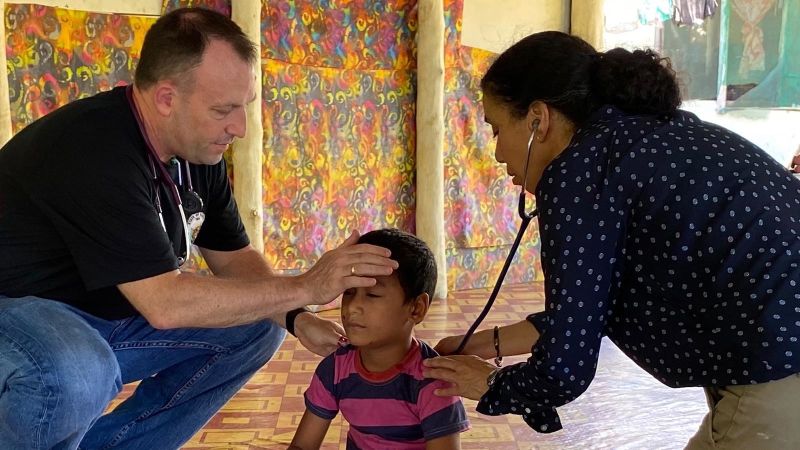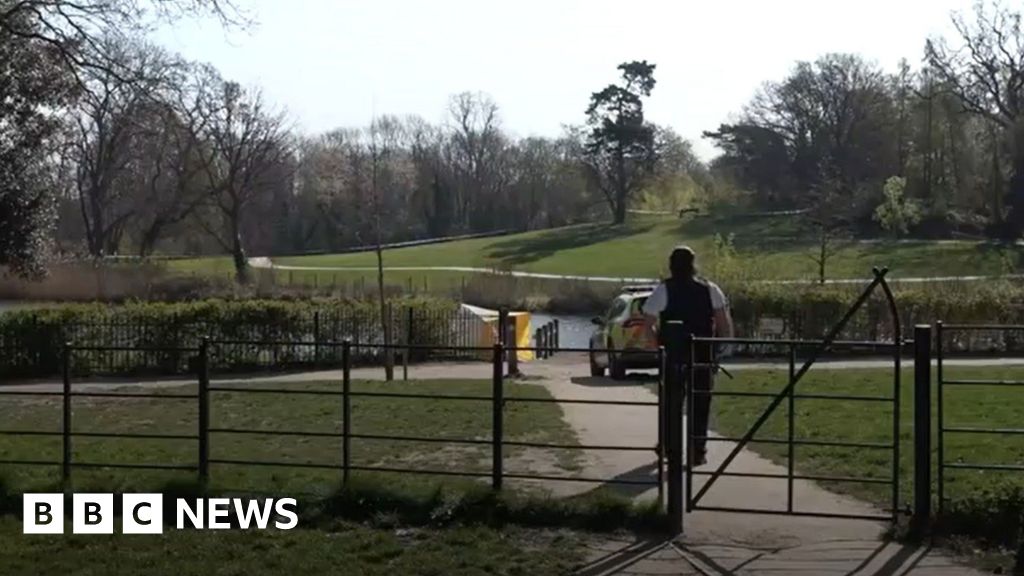Editor’s note: Dr. Josh Green is the governor of Hawaii. Before being elected governor in 2022, he worked as an emergency room doctor and family physician in Hawaii for over 20 years.
While serving as lieutenant governor, he led an emergency medical mission to help stop the measles epidemic in Samoa and led Hawaii’s vaccination campaign during the Covid-19 pandemic, ranked as one of the most effective in the nation. America’s children are in danger. Measles outbreaks are spreading in Texas, New Mexico, Oklahoma and beyond, threatening lives, overwhelming health-care resources and exposing vulnerable communities.

Texas alone has confirmed more than 400 measles cases and the death of the first child from measles in our country in more than a decade: the heartbreaking loss of a school-age child in Gaines County. The outbreaks continue to spread, gaining momentum and posing a threat to children across our country — with one public health official in Texas fearing that the outbreak there could last an entire year. But this tragic outcome we can see coming doesn’t have to happen.
We can prevent it if we act now. Measles is an extremely contagious virus that hospitalizes as many as 1 in 5 of those it infects and kills 1 in every 1,000. Before the measles vaccine was introduced in 1963, the United States saw hundreds of thousands of cases every year, many resulting in complications like pneumonia, encephalitis and death.
Twenty-five years ago, nationwide vaccination efforts had virtually eliminated the disease in the United States by achieving vaccination rates of 95% across the country, establishing herd immunity and preventing the disease from spreading. Today, vaccination rates have been allowed to fall in many states. Experts fear that the elimination of the disease is at risk and that measles may again become a threat.
Vaccination campaigns save lives during outbreaks of deadly viruses. I have witnessed the lifesaving power of vaccines firsthand. During the Covid-19 pandemic – when I was serving as lieutenant governor – we vaccinated over a million people in Hawaii, saving thousands of lives and achieving the lowest infection and mortality rates in the country.
In 2019, a measles outbreak swept through the island nation of Samoa. The spread of antivaccine misinformation in the previous year had caused fear and uncertainty, which kept many families from vaccinating their children against measles. The result was a devastating outbreak that infected more than 5,000 people and killed 83, mostly children.
In December of 2019, I led an emergency medical mission from Hawaii to vaccinate 37,000 people in Samoa over 36 hours, rapidly raising the vaccination rate and helping to end the deadly outbreak. According to a US Centers for Disease Control and Prevention report from October, there are 14 states in the US where measles vaccination rates among kindergartners have fallen to dangerously low levels under 90%. Communities with vaccination rates below the 95% threshold necessary to maintain herd immunity become fertile ground for measles outbreaks.
In Gaines County, Texas, almost 1 in 5 kindergartners entering the school system is unvaccinated against measles. Declining vaccination rates are fueled by the troubling spread of antivaccine misinformation, skepticism and complacency. The top public health official in America, Health and Human Services Secretary Robert F.
Kennedy Jr., has suggested that the MMR vaccine that protects against measles, mumps and rubella is not safe. This is false.
The measles vaccine has saved an estimated 94 million lives worldwide over the past 50 years, and the US Food and Drug Administration has approved the MMR vaccine as safe and effective since 1971. Kennedy also continues to cloud these facts by describing vaccination as a “personal choice” and promoting vitamin A supplementation as a primary response to the measles outbreak. Let me be clear: Vitamin A may lessen measles complications once infection has occurred, but it does not prevent the disease.
To suggest otherwise, even implicitly, distracts from the proven, lifesaving effect of vaccines and puts children at risk. As to vaccination being a “personal choice,” I strongly disagree with Kennedy, and I regard this equivocation as dangerous and irresponsible. It’s much more than a personal choice; it’s a choice to protect not only ourselves but our entire community.
As a physician, a governor and a father, I believe it is our moral responsibility to protect vulnerable people by contributing to herd immunity against viral infections through safe and effective vaccination. In the face of the current outbreaks, I urge the US Department of Health and Human Services, under Kennedy’s leadership, to act swiftly and decisively. The department must mount an extensive, science-based vaccination campaign to halt the spread of measles and prevent future tragedies.
This campaign must focus on four essential pillars: education, community engagement, accessibility and responsible public policy. First, education is paramount. We must aggressively counter misinformation by providing clear, factual and scientifically grounded information.
This approach involves transparent communication regarding vaccine safety and effectiveness and should engage trusted local voices such as health-care providers, educators, faith leaders and community advocates. Second, we must emphasize genuine community engagement. Communities should be active participants in this public health effort, not merely passive recipients.
When we engage respectfully, listening to local concerns and responding thoughtfully, we build trust and improve public health outcomes. Community-based approaches have repeatedly proved effective at increasing vaccination rates, and they should guide our current response. Third, accessibility to vaccines must be prioritized.
In regions with limited health-care infrastructure, innovative solutions — such as mobile vaccination units, community health fairs and partnerships with local organizations — can bridge gaps and ensure vaccines reach everyone. No one should face barriers of affordability or convenience when it comes to vaccination. Finally, we need strong, responsible public policy that balances individual liberties with our collective responsibility.
Policies that require vaccination for school entry, excepting legitimate medical exemptions, have historically maintained high immunization rates and protected community health. These regulations must be enforced firmly yet compassionately, recognizing that public safety is paramount. Now is not the time for equivocation or delay.
We must take urgent action to protect our families and communities. It is our collective moral responsibility to prevent more infection, more suffering and more deaths of American children through our commitment to safe and effective vaccines and public health education. We can stop the deadly spread of measles in our country by launching a sustained emergency vaccination campaign, starting in the states and communities with the lowest vaccination rates and the greatest vulnerability.
We have the data. We have the resources. Now we must find the compassion, the strength and the will to do what we know is right and protect America’s children.
.
















